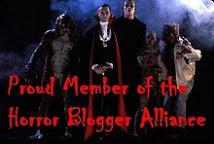In that time span, with films like The Exorcist and The Omen standing tall above many horror films and actually earning respect from critical circles and Oscar voters, film studios of all sizes and shapes began to put their faith in people's willingness to fear devilish forces. But while most took evil forces and embodiments of evil very seriously and focused on gritty realism, one film chose to lead with a quote from the leader of The Church of Satan and then follows with an unmanned and self-aware demon car.
That movie, of course, is The Car, in which the great and powerful James Brolin faces off with a customized 1971 Lincoln Continental. As a Police Captain in fictional Santa Ynez, Utah, Brolin's Wade Parent is basically the everyman of the decade - which means he's a single dad who hooks up with a young music teacher and has a mustache and really cool sunglasses. He's living the dream, until that black demon vehicle rolls into town and starts rolling over anyone and everyone it can.
The trick behind The Car is that this is literally all the film is about. A car. The cover of the DVD release suggests that the viewer consider "What evil drives...The Car", but do not expect much of a reveal during the film. A lot of people would suggest that The Car needs a face to its terror, at least in the form of a deranged cult leader that controls it from afar or a scared priest who connects the terror to some prophecy. Alas, director Elliot Silverstein - who previously helmed successful westerns Cat Ballou and A Man Called Horse and wrote episodes of The Twlight Zone and Tales from the Crypt - lets the car stand alone as the villain for the film. (Which can be kind of confusing when I'm typing this. So for the rest of this post, I will refer to the vehicle as a character as "Boris". And will still refer to the film as The Car.)
Anyway, Boris The Car, as I like to call him, is basically the biggest paradox in horror history. On one hand, Boris is something that could kill us, on the other, Boris is a big freakin' car in the middle of a Utah desert. One one hand, we know Boris has some kind of evil force driving him, but on the other hand we have no idea why that makes any kind of sense. I've seen The Car a few times now, and I keep going back to it willingly, yet there are so many moments throughout the film when I just don't get Boris. I do know that I love that he doesn't have door handles, but the rest of Boris is confusing.
Am I overthinking Boris? Should I just sit back and be afraid of Boris and stop trying to rationalize Boris? Probably. Most horror fans will notice obvious similarities between The Car and Stephen King's Christine (which was published six years after The Car was released), and maybe that's why I struggle so much with accepting the fact that Boris simply is who Boris is. King gives his killer car a name and a personality, while this film leaves me making up the name Boris and knowing no motive for a killer car rampage.
But, we get James Brolin reacting with fear, we get his girlfriend - Kathleen Lloyd, creating something out of nothing with a side character - fighting to protect children, and we get Ronny Cox as the unsure deputy who brings up the possibility that Boris is a force of biblical evil. Like plenty of my favorite ridiculously plotted horrors - and like almost all horrors of the 1970s - The Car never winks at the audience and gives us a reason not to feel that Boris The Car is a credible threat to legitimate people in a legitimate movie.
The film still probably works best as something to watch with friends and laugh at, thanks to its premise and how dated it is, but I still find it fascinating in its own way. The final reveal isn't a Soylent Green-style punch to the gut, but it is grand and provokes more thought than anything else in the movie does. The Car plays like a made for TV drama with a killer car, but if you're looking for a movie where James Brolin takes on an evil car then you're not going to find anything more fun than this one.


















No comments:
Post a Comment